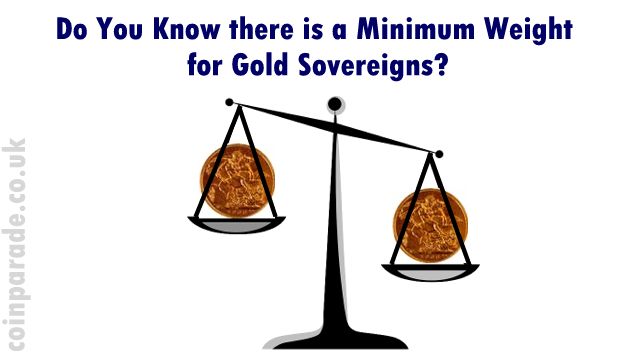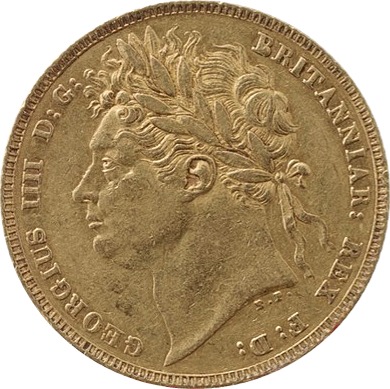
Most gold sovereign collectors should be able to tell you that a new gold sovereign weighs 7.9881 grammes (or grams). But do they know what the minimum weight is?
Well, by English Law, a sovereign is legal tender as long as it weighs 7.93787 g or more.
0.05023 g under standard weight is about 0.6% below standard weight. This is to allow for abrasion.
Why does a gold sovereign weigh 7.9881 g in the first place?
Although we had a coin known as the sovereign back in 1489, the modern gold sovereign was introduced in the ‘Great Recoinage’ during the reign of George III in 1816.
Up until then we used the Guinea, which was a gold coin valued at one pound and one shilling (£1.05 in today’s money). The British government decided that Britain should use the pound as the trading standard and decided to introduce a £1 gold coin – the gold sovereign.
A quick word about weights
Although we have been talking about grammes, the European SI units of weight were many years into the future. At that time we had pounds (lb) and ounces (oz), where 1 pound = 16 ounces. But be careful here as not all ounces were the same!
The ounce we use for precious metals is the Troy Ounce, which is 31.1034768 grams. It is still an International standard.
When you go down to the supermarket and see the word ounces on a packet, it is the avoirdupois ounce (another International standard, popular in UK, USA and Canada) and is 28.3495231 grams.
With today’s price of gold it would be an expensive error if you confused which ounce to use, so I recommend you always use grammes.
It gets slightly more complicated in that in the early 1800’s we had other sub-units of weight, namely ‘grains’ where 113 grains = 7.3224 g = 0.2354 troy ounce. Grains were originally the dried kernels of grains of wheat.
I should also mention that when we say ‘gold’ it is standard gold, 22 carat, 91.66%. 11 parts gold and one part copper. Adding copper makes the coin more scratch and dent resistant
The Gold Sovereign was introduced in 1816

Britain needed a new gold coin with a denomination of one pound. In those days the gold price did not fluctuation as sharply as it may do today.
At that time, the value for standard (22 carat) gold was £46 14s 6d per troy pound. That is forty-six pounds, fourteen shillings and six pence, or £46.725 in today’s parlance.
This meant a £1 coin needed to weigh 123.2744783 grains or 7.9880518 g. The weight is still the same today.
The gold sovereign has a diameter of 22.05 mm and a thickness of 1.52 mm.
Gold is a soft metal
Gold has several unique properties. It is a rare metal and relatively dense, making it heavy for its size. Gold is also very soft, pure gold bars can be bent by hand (which is why they use ingots) so all circulating coins need the addition of (usually) copper to make an alloy that is much more resilient.
In the old days gold sovereigns were in daily use, there was not the fiat currency system that we have today. Gold coins last about 15 years in circulation and when they get too worn they are melted down and re-minted into sovereigns again.
It was decided that ‘too worn’ for circulation was when the weight of a gold sovereign dropped to 7.93787 g, known as the “least current weight”. A bank would then remove it from circulation and substitute a new sovereign in its place.
The old coins were melted and re-minted, known as recoinage.
The Royal Mint issues only mintage figures, not re-mintage figures, so although some of the pre-war sovereigns had massive mintages (some years more than 10 million) it may have been that there was not much new gold used. It makes it difficult for collectors to know the actual number of sovs that were actually in circulation.








